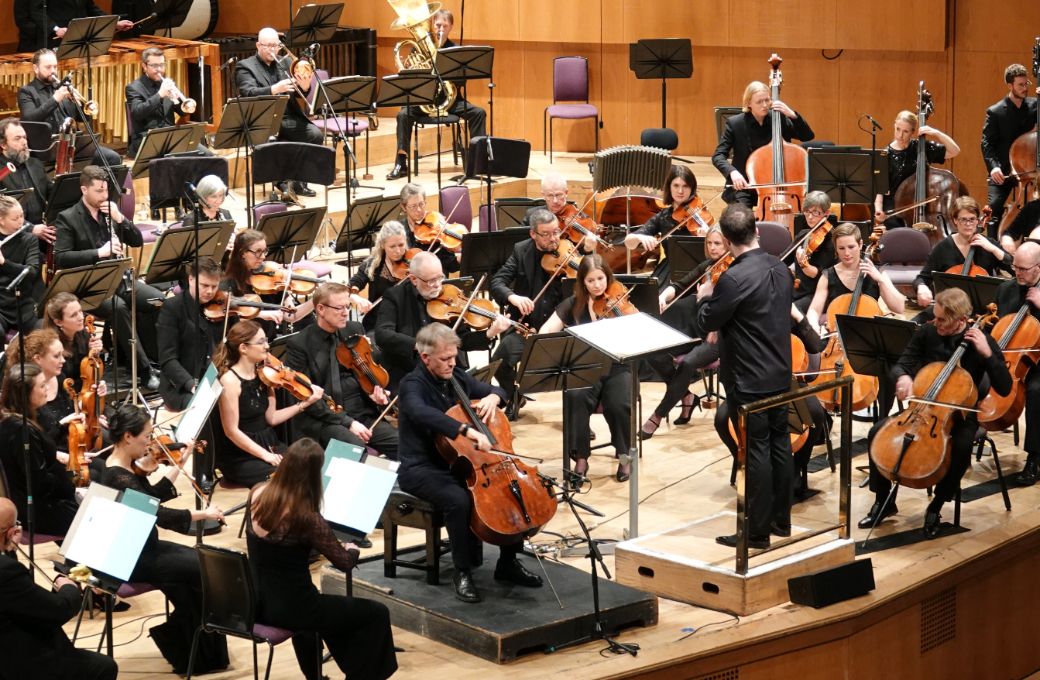The centrepiece of the BBC Philharmonic’s first concert of the year at the Bridgewater Hall was a 2019 cello concerto. First, however, we heard the Prelude to the first act of Mussorgsky’s unfinished opera Khovanshchina, given in Shostakovich's orchestration. Subtitled Dawn on the Moscow River, this short piece evokes a serene sunrise. Ben Gernon and the orchestra created a magical opening to what proved to be a richly rewarding evening.

The gentle opening of Anna Clyne’s cello concerto Dance, commissioned by Inbal Segev who gave the premiere in 2019, took up the gentle mood of the Mussorgsky in music that was just as beautiful. The curious name of the work is taken from a poem by the 13th-century Persian poet Rumi. Each line of the five lines of the poem begins with the word Dance; the remaining words become the headings of each of the five movements of the concerto. Thus the first movement is entitled when you’re broken open. In the composer’s programme note she writes, “I imagined the fragility of being shattered apart.”
In the first movement soloist Alban Gerhardt emerged gradually from the sound of the orchestra in somewhat reserved, melancholy music. The second movement if you’ve torn the bandage off was faster and more aggressive but still appealing. It also brought in some unexpected allusions to folk music. The middle movement was the quiet heart of the piece with many delicate sounds from the soloist and the orchestra. Gerhardt played his gentle melody with tenderness and great beauty. This movement was entitled in the middle of the fighting and the composer’s note explains that “it represents the discovery of a moment within the chaos – where time freezes, providing an opportunity to be still and reflect”, which captures the atmosphere nicely. I found it particularly hard to relate the description to the music in the following movement, in your blood. This was where the soloist was much more in the foreground than he had often been previously with some energetic, exciting music. The finale, when you’re perfectly free, began aggressively and was quite spiky in places but became more melodic and ended rather gently.
This is not a soloist vs orchestra concerto, rather a collaboration between the two. Gerhardt had a palpable rapport with conductor and orchestra, often contributing special sounds to the orchestra as with his harmonics in the central movement. Sometime he made special combinations with groups of players within the orchestra; Gerhardt's interaction with muted trumpets in the fourth movement was especially striking. Clyne’s use of the orchestra was intriguing. There were few prominent solos from the players but the overall sound seemed to keep changing thanks to the inventive orchestration.
Dance was a very enjoyable and accessible concerto which drew warm appreciation from the sizeable Manchester audience. It was primarily melodic and should convince any sceptics of the beauty of contemporary classical music. I hope that other cellists will join Gerhardt in taking up Dance and that we will hear it frequently in the future.
The second part of the concert consisted of more familiar fare: a splendid performance of Rachmaninov’s ever-popular Second Symphony. Gernon led the orchestra through the grand surges of sound, increasing the tension and relaxing it, building up to enormous climaxes and highlighting the more delicate moments. The second movement was urgent without being rushed. The lovely clarinet melody in the Adagio was exquisite; the whooping horn calls at the beginning of the finale were thrilling. We were enveloped in the warm, rich sound world of Rachmaninov.


